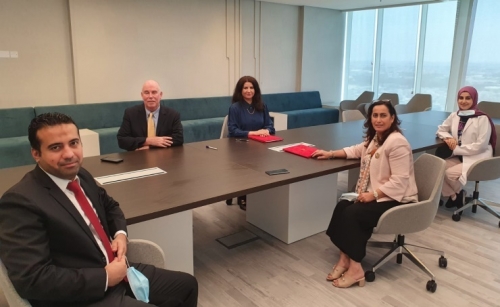Making medicines safe
TDT | Manama
Counterfeit drugs may soon become a thing of the past in the Kingdom! The Bahraini government is putting an end to it by establishing a comprehensive track and trace mechanism to detect a drug’s current and past locations with ease. Which means, the electronic system which comes alive in 2021, will allow a doctor here to ensure that the medicines he prescribes are not fake.
Besides authorities, the system allows retail pharmacies as well as hospitals to ensure a drug’s authenticity by scanning the products before dispensing to improve patient safety, the accuracy of pharmacy operations and reduce errors. This also means that it will be nearly impossible to make an error in handling drugs as a drug’s authenticity is ensured before selling, or dispensing.
Experts say, when correctly implemented, a drug can be tracked throughout the supply chain and traced back up the supply chain upon return or recall. The tracking through serialization begins from the production line and continues to the end-user, which in turn ensures that Bahrain is free of “counterfeit medicines”. The highlight, however, is that it comes with no additional cost.
Not to the government, hospital, pharmacies or import agencies. How does that work? “Since the drug manufacturers collectively finance the system based on sales, it leaves the authority, hospitals, pharmacies and import agents with no additional fees,” explained Dr Maryam Al Jalahma, the Chief Executive Officer of the National Health Regulatory Authority (NHRA).
Dr Al Jalahma added: “This system will make the Kingdom a world leader in stopping counterfeit medicines and make the pharmaceutical supply chain for Bahrain safer.” “We have designed the system according to the European Medicines Verification System,” Dr Al Jalahma pointed out.
According to NHRA, this tracking system is capable of ensuring medicines, especially controlled ones, are not misused. Bahraini company Bahrain-based logistics provider, MVC Global, a provider of track-and-trace platforms for pharmaceuticals and medical devices, is entrusted with implementing the project, the Supreme Council of Health said.
The system will come alive after linking the integrated system to the drug import and consumption (DUR) system established by the SCH. The system ensures products’ compliance and regulatory clearances, as well as physically tracks products from its manufacturing line to the point of sale within Bahrain.
Global Trade Item Number The system works by scanning a 14 digit Global Trade Item Number (GTIN) to identify all of the medicines traded in the Kingdom. Manufacturers and distributors are bound by law to use GTIN on their products in the Kingdom. GTIN number reveals a products expiration date, operation number (Batch number) and the serial number of each package.
The rule applies to medicines manufactured, imported, or manufactured abroad and packed and wrapped in factories inside the Kingdom. Dr Al-Jalahma praised the Supreme Council of Health for implementing such an advanced solution in cooperation with a Bahraini company.
Commenting on the new partnership, MVC Chairwoman Sheikha Dia bint Ibrahim Al Khalifa said: “We have built a professional level team in Bahrain to position the Kingdom as a world leader in supply chain tracking and tracing systems.
And now, in light of the ongoing Corona epidemic, the availability, reliability and safety of pharmaceutical supply chains is a more urgent priority than ever before. ” It is worth noting that MVC founded by Sheikha Dia bint Ibrahim Al Khalifa in partnership with AVC Global, a leading blockchain supply chain company brings together rfxcel, a cloud-based provider of serialization, and track and trace solutions.
Related Posts

